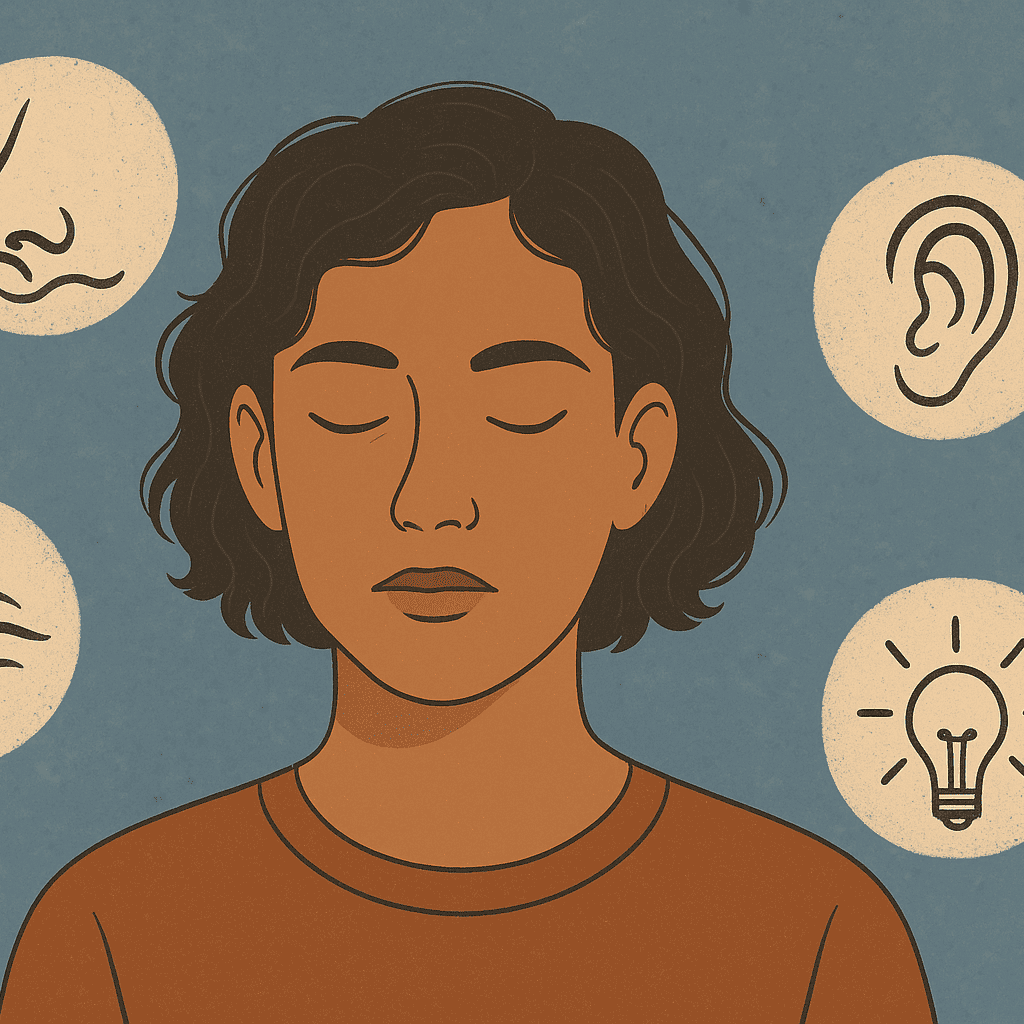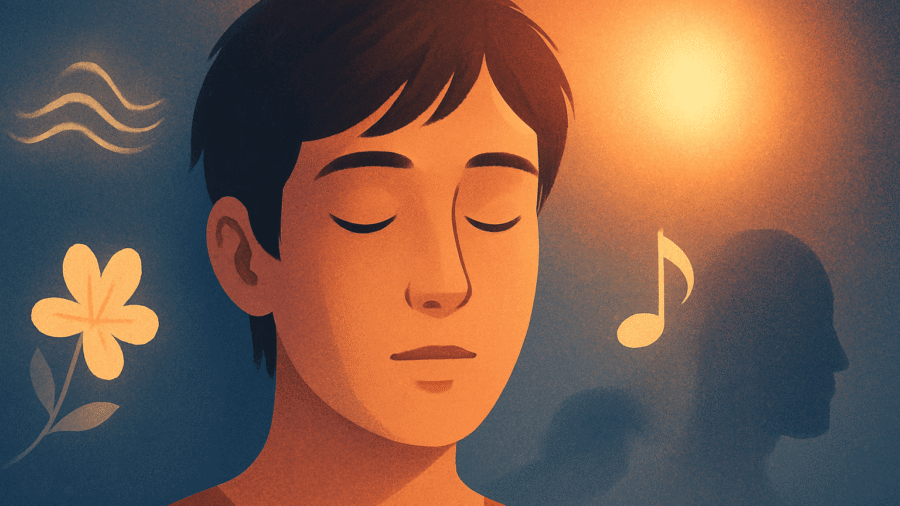Our memories gather like how clouds slowly gather before a rain. Soft and slow, they build from the smallest traces a glance, a word, a touch or even a shared laugh.
A few of these moments pass by like wind, barely brushing against you. They carve themselves into the soil of your mind, leaving deep impressions that cannot be erased by the passage of time itself.
These memories do not just stick around. They live, pulse beneath the surface of your everyday life, resurfacing in scents, sounds, and sudden feelings. They are stitched into the fabric of who you are. But why does this happen?
Let us explore why some memories are stronger than others, how trauma and joy inscribe themselves in our brains, and how that influences healing, growth, and emotional health.

How the Brain Stores Emotionally Charged Memories
Your brain does not treat all memories the same.
Events that have emotional significance are much more likely to become encoded and stored in vivid detail than ones that are not. That is when something becomes emotional, either by bringing fear, joy, or sadness, your brain pays closer attention and stores it more deeply.
According to Research from Frontiers in Psychology, emotional events activate a part of the brain called the amygdala. This area sends a signal to the hippocampus, which is in charge of forming and storing memories. When the two areas work together during strong feelings, the brain holds on to that moment more tightly. It is like the brain puts a sticky note on the memory, saying: “This is important, keep it.”
The Role of Emotion: Why Fear, Joy, and Pain Linger
When something emotional happens, like a car crash, a first kiss, or an embarrassing moment, your brain reacts right away. It sends out stress chemicals like adrenaline and cortisol to keep you on the lookout and aware of what is happening. These chemicals make your memory system work harder, especially in the parts of the brain called the amygdala and the hippocampus. These areas help you feel and remember things.
As described by Nature Communications (2023), during strong emotional events, these brain areas are more active and form stronger memories. That is why some moments, particularly emotional ones seem to have occurred yesterday, even though years have gone by.
This is why also some memories from trauma come back so clearly and out of the blue. The brain has stored them in intense strength, thinking they were going to be useful to protect you.
Why Painful Memories Feel Too Strong?
While some strong memories are joyful, others are tied to pain or danger. When something very upsetting happens, your brain tries to protect you by holding on tightly to that moment.
These memories are often very clear and hard to forget. They can suddenly come back through a smell, a sound, or even a place. This is because the brain stores emotional memories differently especially when the experience was scary or overwhelming.
As the article, How PTSD Affects the Brain, pointed out, PTSD physically restructures your brain in a way that, the trauma can lead to structural changes in the amygdala, hippocampus, and prefrontal cortex, leading to flashbacks, emotional numbing, or exaggerated fear responses.
Memory and trauma researchers have also indicated that when an event is too complicated for the brain to understand all at once, it may keep the memory in small pieces like images, sounds, or smells. That is why people who have been through trauma or with PTSD remember tiny parts of what happened, even when they cannot narrate the whole story.

Why Positive Memories Can Also Be Deeply Rooted
It is not all about fear and pain.
Happiness, love, wonder, and awe get memory as deeply rooted as well. The brain uses the same neural pathways to highlight positive experiences as it does for negative ones.
The difference is in the kind of the emotion, not the depth.
If you feel safe, connected, or elated, your brain marks the experience as important. A wedding, a golden-hour hike, or the first words of a child might be a lifelong touchstone. Such memories are not merely emotional; they are chemically reinforced.
The glossary entry Amygdala explains how the amygdala is involved in both positive and negative emotional memory processing. It is not the mood but the intensity that counts.
Factors That Influence Memory Strength
Several factors influence how deeply something is entrenched in memory:
1. Strong Emotions
When you feel something deeply (good or bad), your brain pays more attention.
You may not remember what you had for lunch last Monday, but you probably remember how you felt when you got your exam results, lost someone close to you, or fell in love for the first time. These emotions make the memory stronger.
2. Rehearsal or Repetition
The more you think about something, talk about it, or revisit it in your mind, the stronger that memory becomes. If you rehearse a funny childhood story numerous times, you will find it easy to recall years later. Your brain reinforces that memory as though it was a path that gets simpler to walk every time you go along it.
3. Using Your Senses
Memories that include smell, taste, sound, sight, or touch tend to be easier to remember. That is because they involve more parts of the brain.
The smell of a certain perfume might suddenly remind you of someone you once loved. Or the sound of a song might take you right back to a school dance or a road trip. That is because your senses helped “record” that moment more fully.
4. New or Surprising Events
If something is unexpected or different from your daily routine, your brain is more likely to remember it.
You probably remember your first day at a new school better than your 30th day. Your brain makes new events feel more important and gives them more attention.
5. Stress Hormones in the Body
When you are under stress, your body releases hormones like adrenaline and cortisol. These chemicals can make your brain store memories more strongly especially if the situation felt serious or scary.
If you have ever been in a car accident, you might remember every little detail, what you heard, how the air smelled, what the sky looked like. That is because your brain was flooded with stress hormones trying to protect you and help you remember what happened.
As shown in Nature Communications, these brain chemicals boost memory activity during emotional or intense events.
How to Cope With Unwanted Strong Memories
Some vivid memories heal us. Others hurt.
If you struggle with memories that are too strong or painful, you are not alone. That is trauma memory at work, and healing is not about erasing memories, but changing how they live in your body and mind.
Here are some supportive ways to begin:
- Grounding Techniques – Reconnect to the present moment through breath, movement, or sound.
- Therapeutic Storytelling – Talking through memories can integrate them into your narrative and reduce their grip.
- Trauma-informed Therapy – Therapies like EMDR or somatic experiencing help release stored memory distress.
- Self-Compassion – Offering kindness to your past self helps reframe and regulate memory’s emotional weight.
Remembering What Matters
Some memories shape who you are.
They linger not because they are trying to hurt you but because your brain, in its brilliance, concluded that they were significant.
By understanding why some memories feel stronger than others, you can begin to relate to them differently. Whether a moment brings tears or laughter, memory is not just about what happened. It is about what you felt, and what your brain tried to protect you from or preserve for you.
When you honour that process, you begin to reclaim your power over even the strongest memories.



Add a Comment